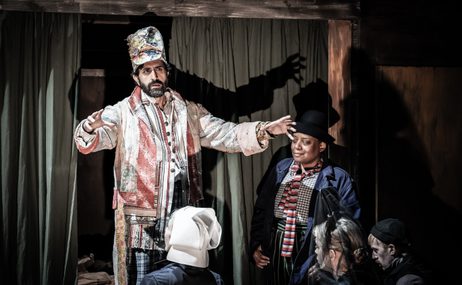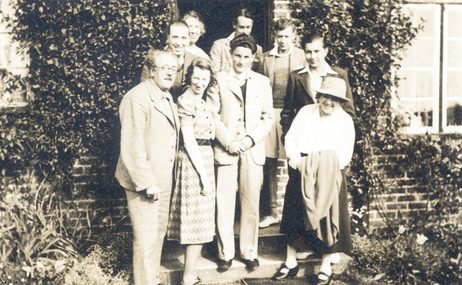Presented by Christopher Hilton
Britten composed this work as a tribute to his first composition teacher, Frank Bridge, in 1937. As a precocious child Britten had composed reams of music even before his teens but had no formal training until his lessons began with Bridge in early 1928. The older composer encouraged him to hone his craft, and to focus on developing his own musical language – often quite forcefully:
‘This strictness was the product of nothing but professionalism. Bridge insisted on the absolutely clear relationship of what was in my mind to what was on the paper. I used to get sent to the other side of the room; Bridge would play what I’d written and demand if it was what I’d really meant.’ (Britten, writing for the Sunday Telegraph in 1963.)
After a few months with Bridge, the number of pieces Britten wrote declined significantly while the quality and individuality within them began to emerge.
Britten was very fond of the ‘theme and variation’ format, which appears in a number of his works. Each movement of this work was intended to represent an aspect of Bridge’s personality (as Christopher Hilton explains in the film). The theme was from Bridge’s Three idylls for string quartet (1911), and Britten had in fact experimented with it already. In 1932 he began set of variations for piano based on the same theme (see the Britten Thematic Catalogue entry about it here). Bridge’s influence extended far into Britten’s career: his advice to aim for authenticity stayed with him throughout his life, as did the ferocious work ethic. We are paying tribute to Bridge and to the relationship between the two composers in a short series of recitals, beginning on Friday 27 April.
Watch more

74th Aldeburgh Festival
09 – 25 June 2023
A Song at The Red House: 'Tell me the Truth About Love', by Benjamin Britten
Soprano Elise Caluwaerts performs one of Britten's cabaret songs, with a witty text by WH Auden. Accompanied by Lucy Walker on Britten's Steinway piano…
Work of the Week 24. Violin Concerto
Presented by Roger Wright
